You Can't Run Away From It

Brief Synopsis
Cast & Crew
Dick Powell
June Allyson
Jack Lemmon
Charles Bickford
Paul Gilbert
Jim Backus
Film Details
Technical Specs

Synopsis
After Texas heiress Ellie Andrews defies her father, A. A. Andrews, to marry fortune-hunter Jacques Ballarino, Andrews has Ellie kidnapped before the marriage can be consummated and locks her away on his San Diego yacht while he arranges an annulment. To thwart her father, Ellie jumps overboard, and travelling incognito, boards a Greyhound bus bound for Houston, where her groom awaits. Also on the bus is Peter Warne, an irreverent, fast-talking reporter who has just been fired. Ellie is assigned to the seat next to Peter, and when they stop for a dinner break, a thief steals the suitcase containing all her money, leaving Ellie with only six dollars to her name. The bus continues onto Tucson, and when it stops for breakfast, Ellie naively asks the driver to wait for her. Returning late, Ellie finds the bus gone and a bemused Peter waiting at the station with the ticket she left behind. Disclosing that he knows Ellie is the missing heiress, Peter holds up a copy of the local newspaper with her picture plastered all over the front page. When Ellie offers to buy his silence, Peter, offended, sends a telegram to Joe Gordon, his former editor in Houston, offering an exclusive story about his cross-country adventure with the heiress. They then board the night bus to Houston, where Ellie is accosted by the garrulous, lecherous George Shapely. To rescue Ellie from Shapely's verbal advances, Peter tells him that they are married. When the bus is forced to stop for the night because the road has been washed out by a storm, Peter and Ellie take refuge at an auto court, where Peter registers as husband and wife. Once in their room, Peter strings a blanket between their beds and dubs it the "Walls of Jericho." Ellie accuses Peter of trying to take advantage of her, but Peter replies that all he wants is a story. Meanwhile, back in Texas, Andrews offers a $20,000 reward for Ellie. The next morning, an attraction begins to smolder between Peter and Ellie when he cooks her breakfast and she confides that she has never been alone with a man. When Andrews' detectives come to the auto court in search of Ellie, Ellie combs her hair over her face, affects a crude accent and feigns a marital spat with Peter, sending the embarrassed detectives scurrying. Ellie and Peter then break out in a congratulatory dance and are about to kiss when Peter sees a newspaper story trumpeting the reward. Concerned, Peter insists upon leaving the bus and taking the back roads. Broke and hungry, Ellie proves her mettle by using her womanly wiles to hitch a ride with Danker, a passing motorist who offers them a ride in his old jalopy. When they stop at the diner, however, Danker speeds off with Peter's suitcase. Peter chases after Danker, then swaps his wrist watch for the old clunker and drives back to fetch Ellie. After Ballarino refuses his father-in-law's demand for an annulment, Andrews releases a statement that he will not interfere with his daughter's marriage if she will just return home. Upon reading the story in the paper, Ellie, who is falling in love with Peter, tries to delay their arrival in Houston by convincing Peter to spend one last night on the road. That evening, after Peter strings up the Walls of Jericho, Ellie crosses over to Peter's side and confesses that she loves him. Stunned, Peter tells Ellie to go back to bed, and once she falls asleep, he barters his hat for a tank of gas to drive to Houston. There, Peter goes to Gordon's office and offers to sell his story for $2,000 so that he an afford to propose to Ellie and "tear down the Walls of Jericho." Back at the motel, the proprietors awaken, and noticing that Peter's car is missing, think that he has skipped out on the rent. Barging into Peter's room, they find Ellie alone and throw her out into the night. Believing that Peter has deserted her, Ellie contacts her father about coming home. Peter is motoring back to Ellie when Andrews, accompanied by a police escort, sweeps past to collect his daughter. While stopped at a railroad crossing, Peter spots Ellie in Andrews' car and tries to follow, but his jalopy breaks down. When Peter sheepishly returns to Gordon's office to return his advance, the editor assigns him to cover Ellie's lavish wedding that is to be held at the Andrews estate. On the day of her wedding, Ellie tells her father that she is in love with Peter, prompting him to show her a letter that Peter has sent, asking for reimbursement of his expenses. When Ellie reads the letter, she assumes that Peter is after the reward. Soon after, Peter arrives at the estate and presents Andrews with an itemized bill for $35.75. When an incredulous Andrews asks why Peter has decided to forgo the reward, Peter finally admits that he is in love with Ellie. As Andrews escorts his daughter to meet her groom, he tells Ellie that Peter has refused the reward and declared his love for her. Just as the ceremony begins, Peter walks out, and Ellie, noticing his absence, runs after him, flags him down and jumps into his jalopy. Later, while on their honeymoon, Peter tears down the Walls of Jericho for good.

Director

Dick Powell
Cast
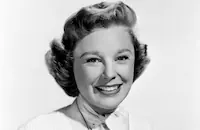
June Allyson

Jack Lemmon

Charles Bickford
Paul Gilbert

Jim Backus
Stubby Kaye
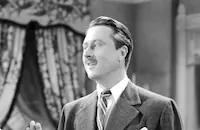
Allyn Joslyn
Henry Youngman
Jacques Scott
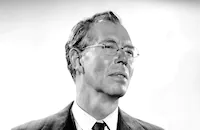
Walter Baldwin
The Four Aces

Byron Foulger
Richard Cutting
Howard Mcnear

Jack Albertson
Madge Blake
Elvia Allman

Louise Beavers
Raymond Greenleaf
Edwin Chandler
Queenie Smith
William Forrest
Frank Sully
Dub Taylor
Steve Benton

Bill Walker
Herb Vigran
Larry Blake
Cecil Weston
Tony Martinez
William B. Lee
Allan Davies
Thurl Ravenscroft
Maxwell Smith
Robert H. Stevens
Joe R. Karnes
Don Marlowe
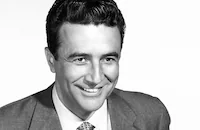
Rick Vallin
Don Ross
Guy Wilkderson
Bill Baldwin
Elaine Edwards
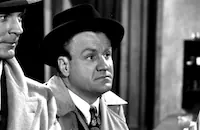
Lyle Latell
Lennie Bremen
Rusty Kaiser
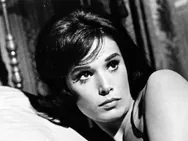
Barrie Chase
Crew
Claude Binyon
Clay Campbell
Al Clark
Gene De Paul
George Dunning
Helen Hunt
Henri Jaffa
William Kiernan
Charles Lawton Jr.
John Livadary
Jean Louis
Norman Luboff
Johnny Mercer
Arthur Morton
Sam Nelson
Robert E. Peterson
Dick Powell
Robert Priestley
Robert Riskin
Robert Sidney
Harry Smith
Richard Sokolove
Morris Stoloff

Film Details
Technical Specs

Articles
You Can't Run Away From It
It helped that Allyson had as her co-star one of the hottest young actors around - Jack Lemmon. The actor, who was eight years her junior, had just won the Best Supporting Actor Oscar® for Mister Roberts (1955) and scored in the musical-comedy My Sister Eileen (1955). Lemmon was cast in the role originated by Clark Gable, as a newspaper reporter who spots a career-making story in a runaway heiress, only to find himself falling in love with her. Lemmon was nervous about stepping into the shoes of "The King." The young actor was already apprehensive about having won the Oscar® so early in his film career and felt sure "there must be a bomb around the corner...too much build-up for a fast let-down." You Can't Run Away from It replicated virtually every scene from It Happened One Night, including the famous disrobing moment that had famously caused sales of undershirts to plummet when it was revealed that Gable didn't wear one. In an interview given at the time of the film's production, Lemmon noted, "Remember I am where Clark Gable took off his shirt and you could hear girls squeal from Maine to California. Well, I wonder what'll happen when I take my shirt off. I don't think it'll impress anybody much. They'll just see a skinny guy with his ribs sticking out. No Clark Gable, just me." As it turned out, he had nothing to worry about. Although reviewers compared You Can't Run Away from It unfavorably with its source, critics and audiences alike were enthusiastic about Lemmon and wanted to see more of him. Even Frank Capra, director of the original, broke his rule about visiting the set of a remake of one of his films to see the rising star at work. Capra considered Lemmon "one of our greatest actors" who had yet to show his full potential. The director had every intention of casting the actor in a future project, but it was never to be.
Allyson also had high praise for her co-star, noting in her autobiography that he was the actor who made her laugh the most. She also later described him as "one of the most professional people I've ever worked with....The nicest thing, I think, while we worked on that film, was the way he always showed respect for everyone else there. He would never expect anyone to do anything he was not prepared to do himself. And Dick loved him. They got on very well indeed."
Actually, Powell was reportedly very worried about the possibility of a romance sparking between his wife and her co-star. The couple had been separated not long before when Allyson fell for co-star Alan Ladd during production on The McConnell Story (1955). Some have noted that this may be why in the full ninety-six minutes of the Lemmon-Allyson movie, the romantic leads never kiss once.
Allyson was no stranger to remakes. In 1948 she appeared in the sixth American version of The Three Musketeers and followed that with Little Women (1949), playing the role Katharine Hepburn originated in the first American sound version in 1933. Following You Can't Run Away from It, she was directed by Douglas Sirk in Interlude (1957), stepping into Irene Dunne's shoes from the original, When Tomorrow Comes (1939). Then it was on to the remake of My Man Godfrey (1957), co-starring with David Niven in the roles created by Carole Lombard and William Powell in 1936. Almost every version was considered well below the originals, and after one more picture in 1959 (A Stranger in My Arms), she did not appear on movie screens again until the murder-mystery They Only Kill Their Masters (1972), playing completely against type as a [SPOILER ALERT] killer lesbian, albeit with her trademark lisp and hairstyle still intact.
Director: Dick Powell
Producer: Dick Powell
Screenplay: Claude Binyon, Robert Riskin, from Riskin's screenplay for It Happened One Night, based on the story "Night Bus" by Samuel Hopkins Adams
Cinematography: Charles Lawton, Jr.
Editing: Al Clark
Art Direction: Robert Peterson
Original Music: George Duning
Cast: June Allyson (Ellie Andrews), Jack Lemmon (Peter Warne), Charles Bickford (A.A. Andrews), Jim Backus (Danker), Stubby Kaye (Fred Toten).
C-95m.
by Rob Nixon

You Can't Run Away From It
Quotes
Trivia
Notes
The working titles of this film were It Happened One Night and Night Bus. According to a September 1954 Los Angeles Times news item, Van Johnson and Constance Towers were considered for the starring roles. By November 1954, a Los Angeles Times news item announced that Robert Mitchum was to star with June Allyson. Although a Hollywood Reporter production chart places Irving Bacon in the cast, he was not in the released film. Producer-director Dick Powell was married to Allyson. This was the only film in which Powell directed Allyson.
You Can't Run Away from It was based on Samuel Hopkins Adams' short story "Night Bus," which also served as the basis for the 1934 Columbia film It Happened One Night, which starred Clark Gable and Claudette Colbert and was directed by Frank Capra. The 1956 film took place on a Texas to California trip, rather than the Florida to New York setting of the 1934 film. Robert Riskin, who wrote the screenplay for It Happened One Night is credited along with Claude Binyon for the screenplay of You Can't Run Away from It. Although many films purport to be remakes of It Happened One Night, You Can't Run Away from It is the only true remake in that it is the only film based on the same source as It Happened One Night.

Miscellaneous Notes
Released in United States Fall November 1956
Remake of "It Happened One Night" (1934) directed by Frank Capra.
CinemaScope
Released in United States Fall November 1956













